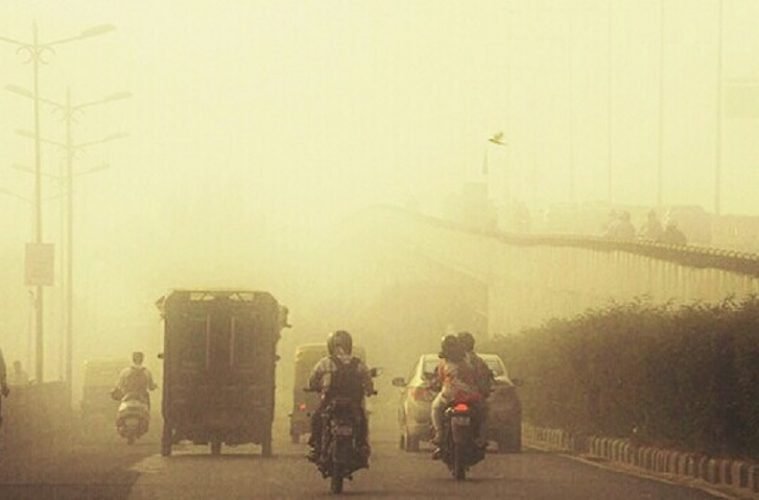The air quality of many cities has taken a hit post-Diwali. Healthy air quality ranges between 0-50 and moderate one ranges between 50-100.

The official Air Quality Index (AQI) website states that the AQI in Faridabad is at 187, two days after Diwali. That of Gurgaon is 176, and the AQI in Delhi is 177. Long-term exposure to this type of air can seriously harm mental as well as physical health. The AQI reported in some regions of Delhi reached 367, classifying such areas as “extremely poor air quality.”
7 million people each year die from air pollution, which includes both indoor and outdoor pollution, according to data made public by the World Health Organization (WHO).
According to the WHO, particulate matter is one of the primary causes of air pollution-related mortality. Water, sulfate, nitrates, sodium chloride, and mineral particles make up the particulate matter.
The current scenario
According to Dr. Arun Sood, retd. Medical Officer, Punjab, “Inhaling smoke can cause inflammation in the lungs as well as the airway. The symptoms first start with coughing and minor irritation, but later these symptoms can develop into serious problems.”
While discussing the side effects of these pollutants, Dr. Sood added that if the exposure to these pollutants is for a long period of time, “It can cause problems like decreased alertness and severe coughing followed by black or grey colored mucus along with hoarse breathing.”
He also added that PM with a diameter of more than 10 micrometres can enter a person’s lungs and cause severe damage, whereas matter with a diameter of 2.5 micrometres can even enter the bloodstream and cause further damage.
Here are a few ways in which people can stay safe from air pollution:
- Avoid morning walks: Health experts strongly suggest that people do not go for evening walks especially in those areas where pollution levels are very high. Elderly people must exercise caution during those times when pollution levels are high.
As long as the smog doesn’t settle down, a morning walk can be very harmful and hazardous. Nevertheless, if one has to take a stroll, go out later in the evening when the vehicular traffic is lighter.
- Avoid outdoor sports: Playing outdoors until things get better can be detrimental to health. Until the smog settles down, young kids, especially those under the age of 8 must abstain from playing outdoors during such times.
- Put on a mask: Dr. Honney Sawhney, a practising pulmonologist urges everyone to wear a mask for it acts as an “extra protection against pollutants in the air.”
Additionally, Dr. Sawhney also stated that “contaminants act as a trigger for those patients who are already down with asthma and bronchitis. Such health problems are easily aggravated during such times.”
An N95/99 mask is highly recommended.
- Keep plants inside the house that act as natural air purifiers: Plants like peace lilies, palms, ferns, aloe vera, spider plants, and anthuriums among others act as natural air purifiers if kept inside homes or offices.
These plants absorb harmful gases and injurious toxins like formaldehyde, benzene, and even carbon monoxide. Keeping such plants in the house can help in purifying the air and fighting indoor air pollution.
- Make changes in your diet: Include foods rich and high in Vitamin A and Vitamin C that strengthen as well as even improve mucous membranes. Vitamin C is highly recommended for those who suffer from respiratory issues.
Gudd, another name for jaggery, is regarded as a superfood for the lungs. Removing pollutants aids in maintaining healthy lungs.
Drinking warm herbal tea can help soothe sore throats. Consuming them can help to calm down irritation and other superficial respiratory problems.
Taking steam regularly is also recommended by health professionals.
- Replace and clean filters: If you are using air purifiers and air conditioners, make sure that filters are replaced approximately every 25 days or so. Health experts strongly suggest the use of air purifiers, especially for expectant mothers.
Air pollution has a direct impact on the health of people. Prevention is always better than cure. Consequently, it is a must that we refrain from bursting crackers, adopt healthy habits, and leave a better place for future generations.
(With inputs from multiple media organisations.)













